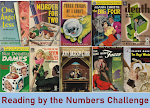 Rebecca's Tale by Sally Beauman is set 20 years after Rebecca's death and the burning of Manderley. It follows the search of Terence Gray for the real Rebecca and the answer to what really happened to her. There is also the small matter of packages with reminders of Rebecca which have been mailed to the family's friend Colonel Julyan and her cousin Jack Favell. Notebooks and mementos that stir up memories.
Rebecca's Tale by Sally Beauman is set 20 years after Rebecca's death and the burning of Manderley. It follows the search of Terence Gray for the real Rebecca and the answer to what really happened to her. There is also the small matter of packages with reminders of Rebecca which have been mailed to the family's friend Colonel Julyan and her cousin Jack Favell. Notebooks and mementos that stir up memories.I have mixed feelings about this book. Standing on its own merits, it is a terrific investigation of truth and point of view. Beauman uses several points of view to tell her story--Colonel Julyan, Terence Gray, Rebecca herself (through the notebooks) and finally Ellie Julyan, the colonel's daughter. With every shift of narrator, she drives home the notion that Gray thinks about early in the book:
"I'm never likely to discover the truth about Rebecca--and what is the truth, anyway? Not a fixed thing, in my experience--never a fixed thing. The truth fluctuate, it shifts; look at it from this window and it takes one shape; look at it from another, and it's altered."
This is true as we follow the different narrators. Colonel Julyan gives us one version of his initial meetings with Terence Gray; Gray gives us a slightly different version. Not that either of the men is lying-- but each conceals certain facts or views them with their different prejudices and preconceived notions. Even when Gray begins interviewing those who still remain from the days when Rebecca lived and died at Manderley, we are shown different versions of the same story. What exactly is the truth? And even Jack Favell begins to doubt what he thought he knew about the past. He says:
"Strange, isn't it? You start talking about the past, and you think you've understood it, and then you suddenly see: Maybe it wasn't the way you thought at the time, maybe there's a different explanation."
I started reading this thinking that all would be explained. I found that wasn't true at all. The reader is still left with doubts. Whose voice should we trust? Can we even trust what Rebecca wrote in her notebooks? There is reason to think that we shouldn't. And, now, having finished the book, I think that this is as it should be. I would hate for all the loose ends that were left dangling in such a tantalizing manner in Rebecca would suddenly be cleared up.
That brings me to my misgivings about the book. As a sequel to Rebecca, I'm not at all sure that I'm satisfied (I rarely am with sequels by other authors or remakes). I don't buy Colonel Julyan for one thing...his characterization doesn't quite ring true with me. The only voice that does ring the least bit true is Rebecca's...and I don't quite trust that she's told the truth. Of course, given what we're told about her in du Maurier's story...that characterization is spot on. We're not supposed to trust Rebecca. And, of course, this book does not have the same gothic feel to it. I miss the shadow and eeriness of the du Maurier classic. Oh, and finally--Ms. Beauman, next time come up with your own opening line. Three stars out five...mostly for Beauman's skill with point of view and exploring how trustworthy that is.






























3 comments:
Glad you felt the same with this book. I did not finish reading it because I found it too slow and nothing was happening. Too bad, I expected a lot from it.
I have read one too many bad reviews for this one which completely put me off. Wonderful concept though
Another reader whose review I read recently had trouble with this one too. I'm not sure about it either, even though it's on my shelf.
Post a Comment